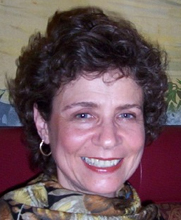 |
|||||||||||||||||||||||||||||||||||||||
|
|||||||||||||||||||||||||||||||||||||||
|
|||||||||||||||||||||||||||||||||||||||
|
|
Questions & Answers - March 2004
Dear Mary, I witnessed the placing of feeding tubes in other residents over the years and each time I think, "What am I going to do if or when that day arrives for my wife?" I have read and re-read articles on the subject many times and know the pros and cons. But I think family caregivers rarely, if ever, can muster up the objectivity needed to make such a decision. I have listened to others tell me how sad it is that my wife is not really living but just existing. They don't understand how grateful I am that her heart still beats, her eyes still focus, and sometimes there is a smile of recognition. She must have food for this to continue and a feeding tube can do that. No one else can begin to appreciate all the factors involved in this decision unless they have walked the same path. Dear Reader, Thank you for taking the time to write and express your feelings. The issue of whether or not to insert a feeding tube is a difficult but common end of life decision for caregivers. In the terminal stage of Alzheimer's disease, the person may experience skin breakdowns and infections due to malnutrition and dehydration. Feeding tubes are used to provide adequate nutrition and fluid. The down side is, they are not known to prolong life in this dreadful disease and can be a source of discomfort and infection. I recently attended an Alzheimer's conference and heard Dr. Thomas Finucane of John's Hopkins University School of Medicine talk about this very subject. He cited several studies that showed tube feedings did not extend the life of an end-stage Alzheimer's person - in fact most study participants lived just as long or longer when hand fed. Results also revealed that healing of existing pressure sores was not improved, nor was the incidence of infection reduced by their use. It is hard to lose someone and normal to want to prolong life by trying every life-sustaining measure available. But we must ask our selves whose needs will the decision satisfy, our loved one's or our own? We must also come to grips with our personal issues surrounding death. Consulting a trusted spiritual adviser like a Priest or Rabbi is helpful. * * * Dear Mary, My question is: should I be concerned or is this just something I should expect because of his age? Dear Reader, The answer is: yes, be concerned. You father is not very old and I know ninety- year-olds who are still vital and active. Yes, there are some memory changes with aging, but loss is not one of them. The symptoms he is exhibiting are dementia-like but it doesn't mean that is what he has. Depression and side effects from medication can produce the same effect, as can some medical problems. He needs to see his primary care physician for a complete medical workup to determine the cause. * * * Dear Mary, My wife and I will be traveling to our son's home for a visit and will see people we have not seen in a while. My wife was diagnosed with early stage Alzheimer's disease just last week and I'm still in shock. How do I tell my son and others about her condition? I know they will notice something isn't quite right with her. Dear Reader, As for others, think how you would tell them she had been diagnosed with cancer instead and use the same approach. Both dementia and cancer are life-altering diseases but we all know that a diagnosis of dementia does not get the same concerned reaction. How others hear the news and respond to it has a lot to do with your attitude. A positive upbeat attitude, even if you don't feel that way, will make the task easier. * * * Email Mary: info@gero-resources.com
It is illegal to reprint articles, in any format (including emails, websites, etc.), without explicit written permission from the author of this article and / or Empowering Caregivers™ |
||||||||||||||||||||||||||||||||||||||
|
|||||||||||||||||||||||||||||||||||||||
|
EMPOWERING CAREGIVERS™ is trademarked. All Information on this website is owned by Gail R. Mitchell. This includes but is not limited to the journal exercises, Newsletters and original articles, etc. Permission must be obtained from Gail R. Mitchell for any external use of this material.
© Copyright Gail.R. Mitchell. All rights reserved. |
|||||||||||||||||||||||||||||||||||||||
